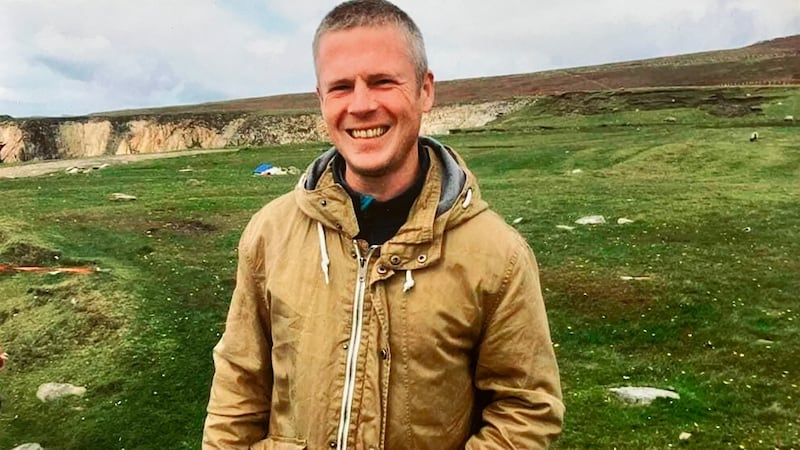I was dusting the old piano accordion when the phone rang. It was my cousin on the line wondering if I knew where exactly in the graveyard our grandparents might be located. I had been at my parents’ grave in July but I always forget that I have grandparents in the cemetery as well. And I couldn’t say exactly where.
Grandfather John married Grandmother Elizabeth more than 120 years ago and lived on Bridge Street in Cavan. Big John was a pig dealer who travelled to fairs across the length and breadth of Ulster, buying and selling livestock, and Elizabeth was from Westmeath, and a relation of the poet Michael Walsh, whose book, The Heart Remembers Morning, sat on my bookshelf when I was a child. Someone had inscribed a phrase on the opening page – In memory of days that were, and therefore are, forever.
Those may have been the words that first aroused my faith in the possibility that eternity was present in every moment.
I was in the room when my grandmother got a stroke in the kitchen one Sunday afternoon in 1964, which led to her death sometime later. She had been feeling dizzy so she went upstairs to lie down.
READ MORE
“I can’t see,” she kept repeating later, lying on the bed, fully clothed, while everyone in the little house gathered on the top landing and around the door of the bedroom on their knees, reciting the rosary.
It seemed to me that every woman in Bridge Street was there, mumbling Hail Marys like a Greek chorus as my mother took the principal role, the leading actor in the tragedy, and sustained a broken dialogue with the woman in the bed.
“Mammy, it’s me,” she cried out, which shocked me because I thought the word mammy was exclusively mine. But Granny moaned and declared that she couldn’t see and that she had a pain in her head.
I swallowed the beauty of the moment and cherished it for years; it was the first time I had seen adults cry, or behave like vulnerable and fragile children. And for a few years afterwards I found a kind of peace by just recalling the incident. It’s amazing how consoling it can be to remember important moments.
My labours of love with the old accordion were interrupted for a second time by an email from a stranger in Canada who listens to my podcast. She too likes to savour old memories. Her Irish granny arrived in Toronto many decades ago. Initially she was put into a camp with other Irish migrants and they were shunned because people thought they brought diseases. Eventually they settled and got work as servants and maids in the houses of English settlers.
Her grandmother had left Ireland on a boat that sailed not long after the Titanic had sunk. She left from Derry, and as she and her entire family were heading for the boat her father insisted on stopping to drink in a city pub so they left him with his porter and boarded the boat on their own.
[ There’s a room where I find refuge from the demons afflicting meOpens in new window ]

Her email related this with eloquence although they were clearly not her memories. She was cherishing family history, keeping alive a thread of connection by the act of remembrance and it struck me that all remembrance is an act of love.
So the accordion didn’t get dusted very well, between the email dropping and the phone ringing. Except that I ended up meditating on the musical instrument itself, an antique machine which I found at a car boot sale recently.
I can’t actually play a tune on it and it’s not likely that I will ever master a single jig but I like to hold it and imagine all the possible people who ever played it down the decades. I play the scale and the bass chords, allowing the bellows to exhale each tone like a lonesome sigh, as the vibration goes through my rib cage and into my heart.
When the accordion was young my grandfather was probably a child, and the Titanic may have still been floating in Belfast harbour, and some heartbroken father who missed the boat may have been getting morose in his porter not far from Derry Quay. But none of them could know that their stories would be told long after they were all laid to rest in various graveyards in Cavan or Canada. Or that someone could draw a little note out of a squeeze box like a prayer in remembrance of them all.














